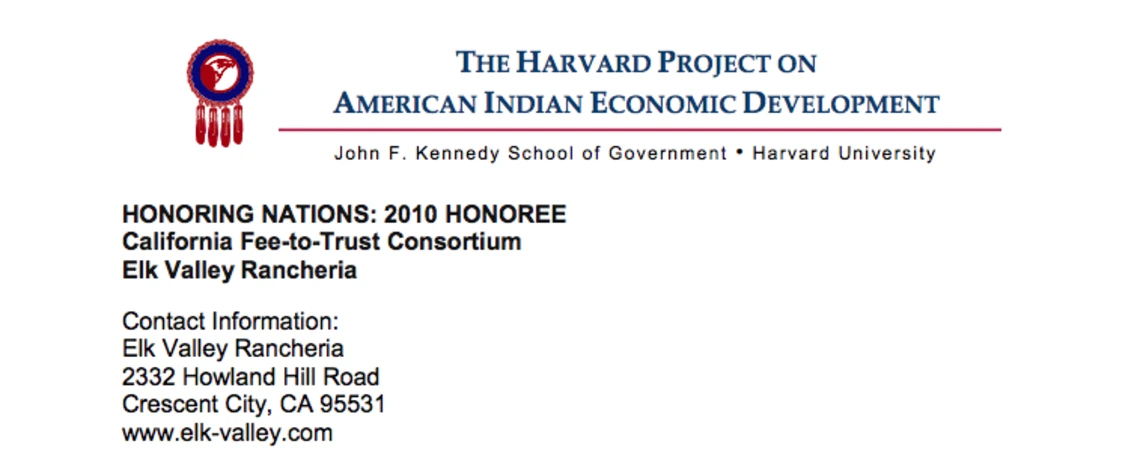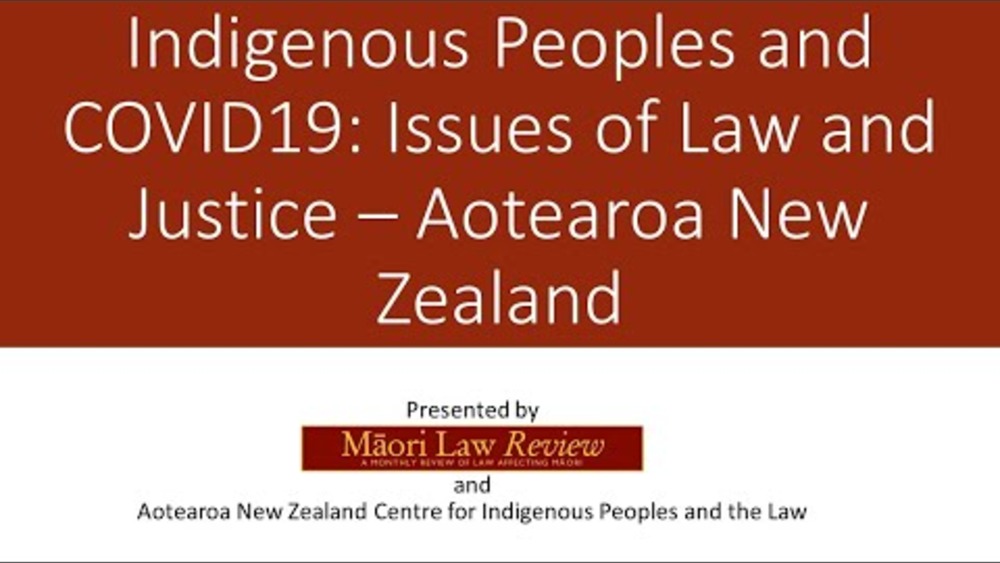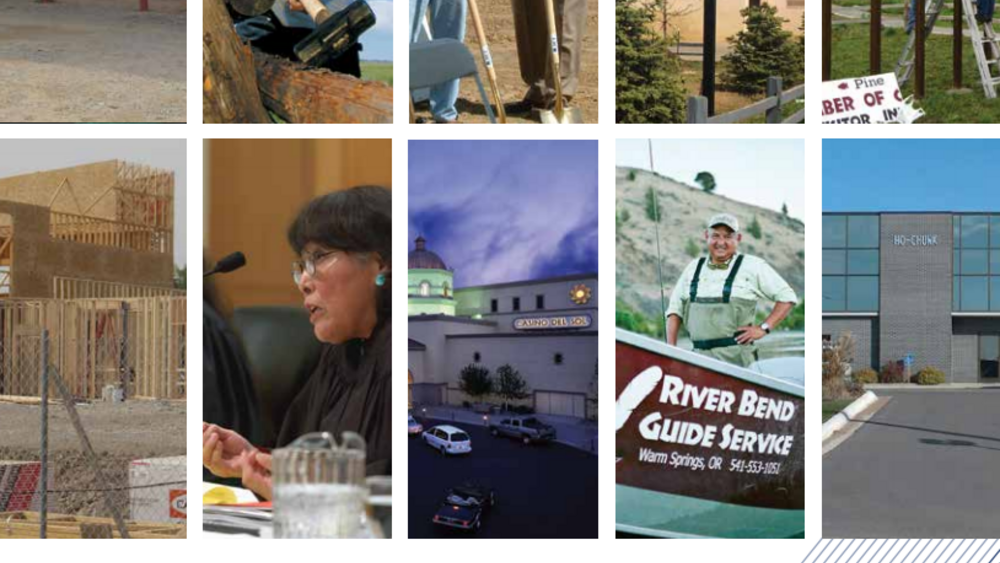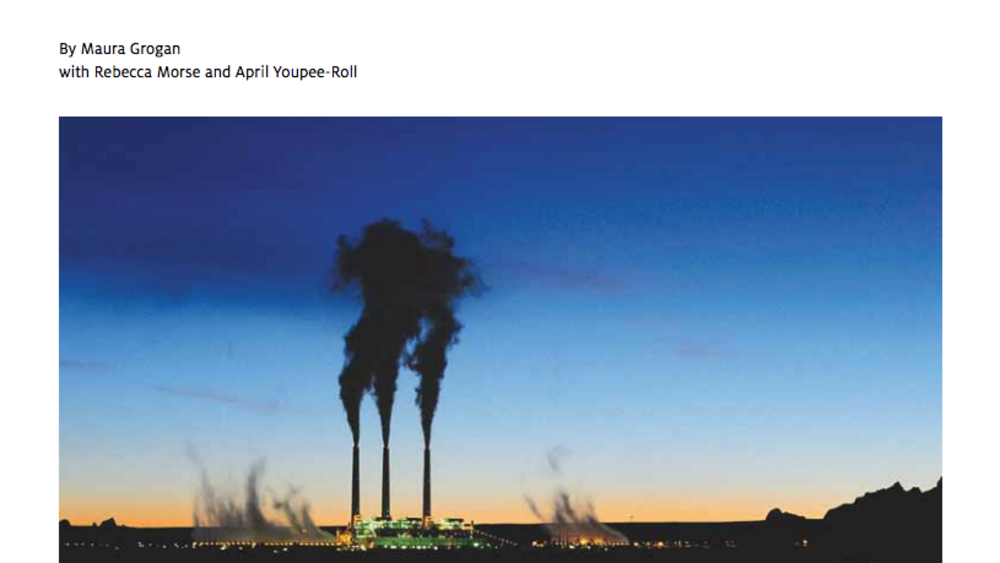The loss of traditional land is a source of longstanding trauma for Native nations. It has far reaching consequences that began at the time of dispossession and persist today. Many tribes struggle to regain territory in order to support the basic needs of their citizens – housing, economic development, and essential services such as schools and health care. Frustrated by the federal government’s handling of applications to put land into trust, a group of California tribes began working with the Bureau of Indian Affairs in 1998 to streamline the process by which tribes can secure landholdings that are protected by trust status. The California Fee-to-Trust Consortium has made it possible for the federal government to manage tribal trust applications in a timely and consistent way.
Additional Information
"California Fee-to-Trust Consortium." Honoring Nations: 2010 Honoree. Harvard Project on American Indian Economic Development, John F. Kennedy School of Government, Harvard University. Cambridge, Massachusetts. 2011. Report.




